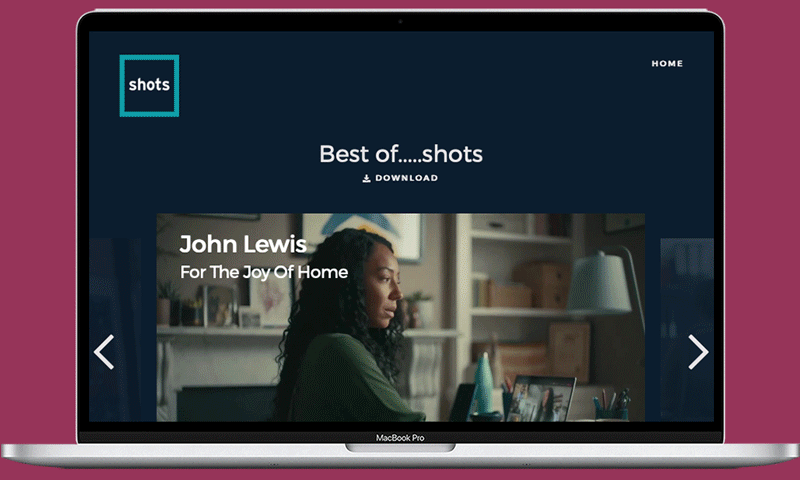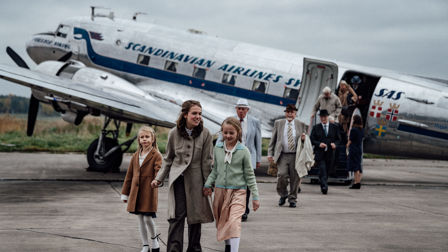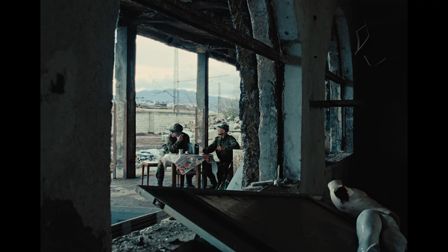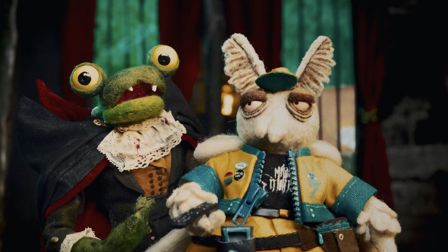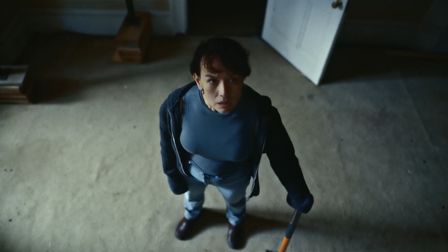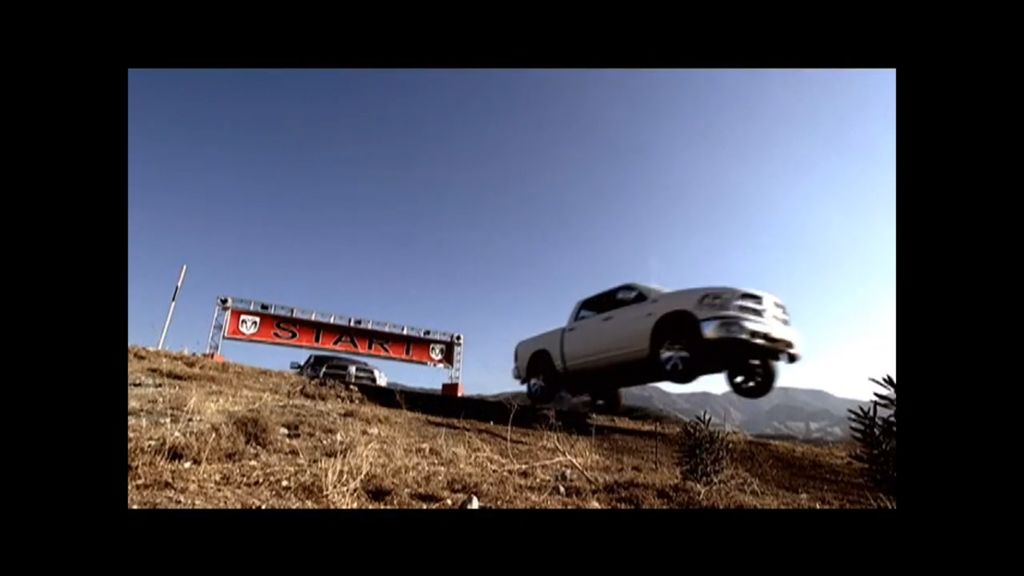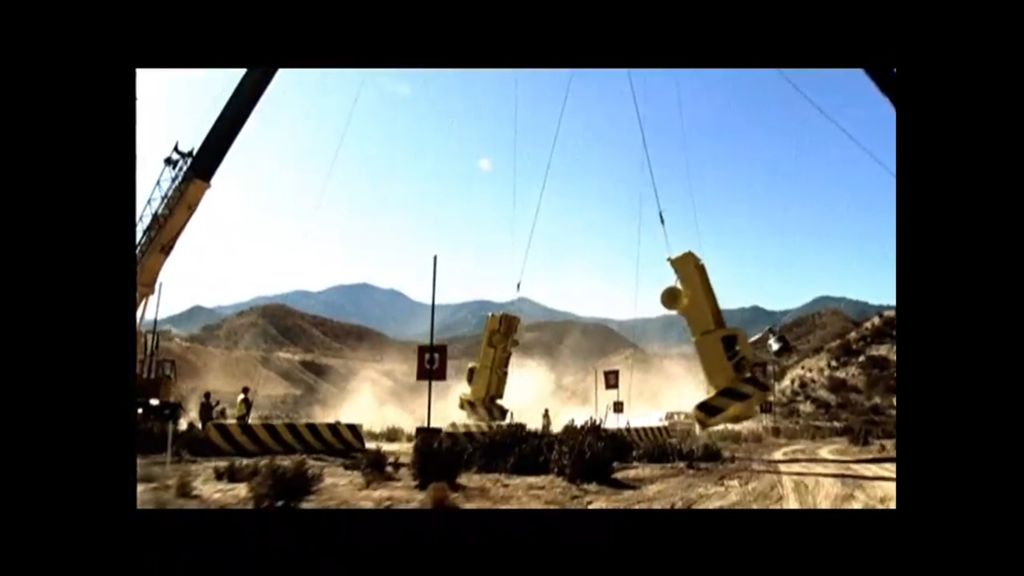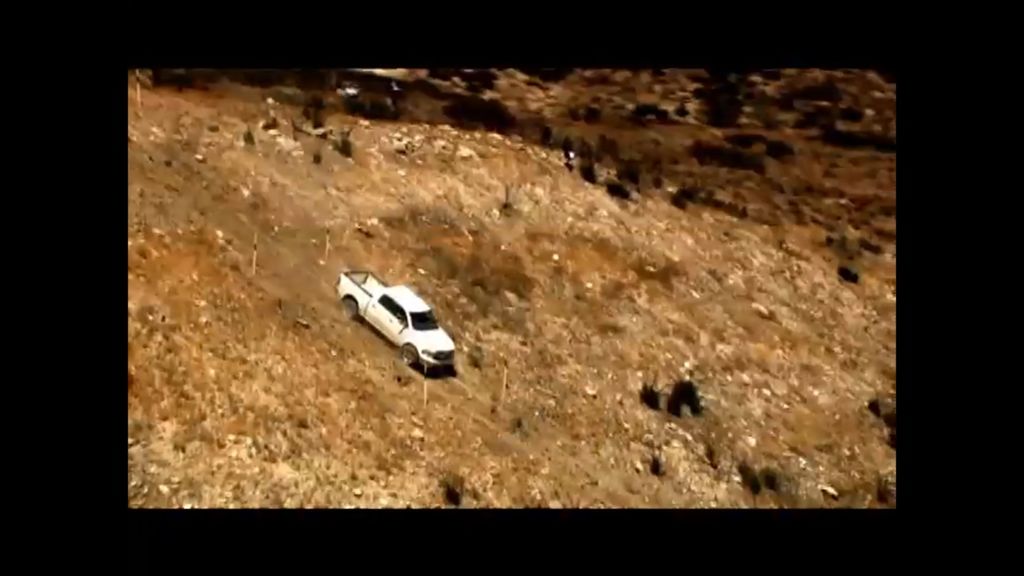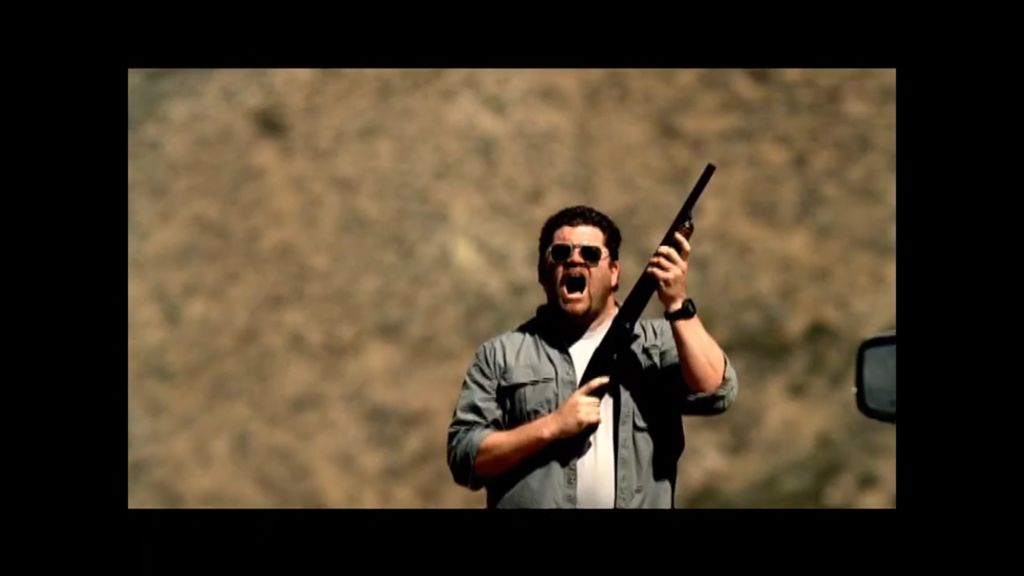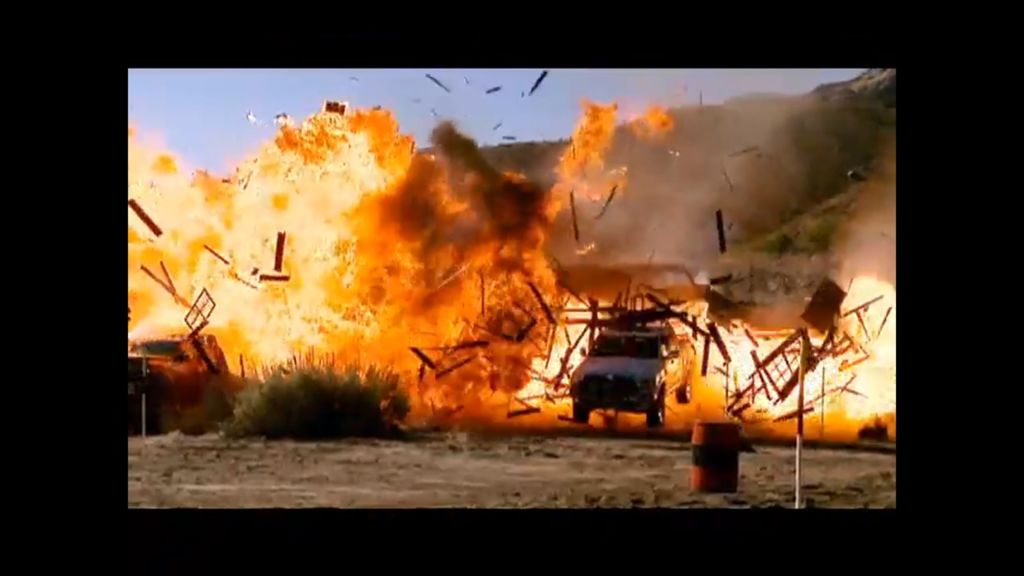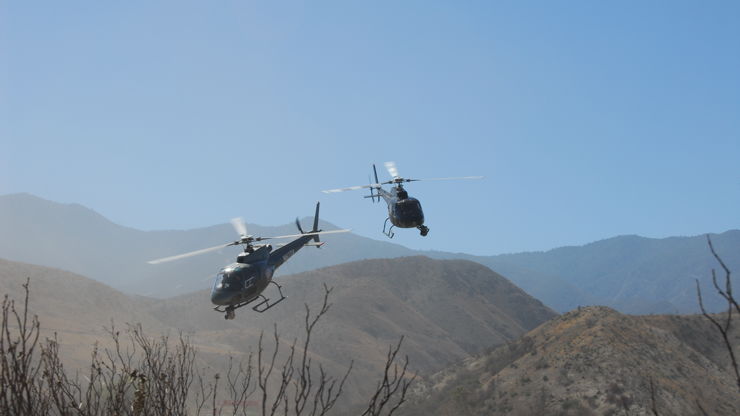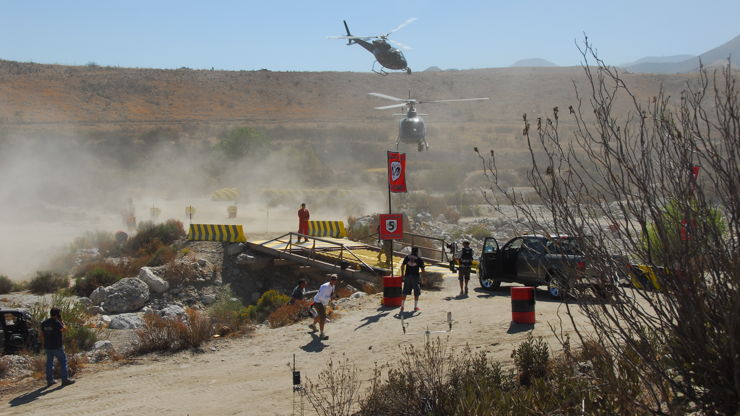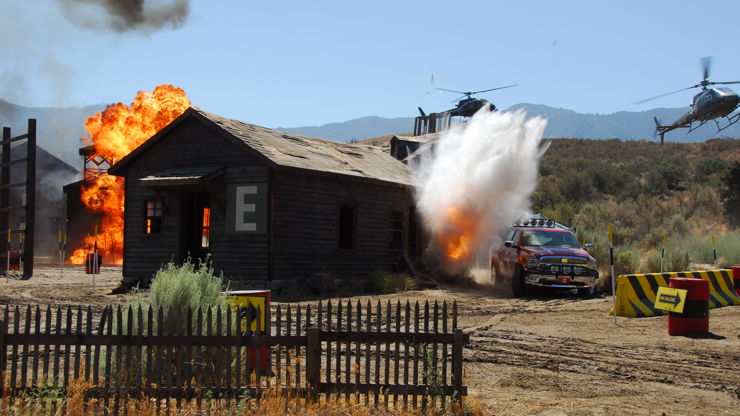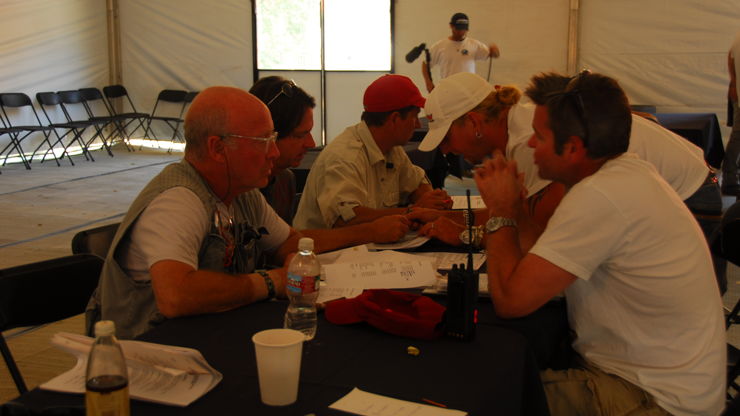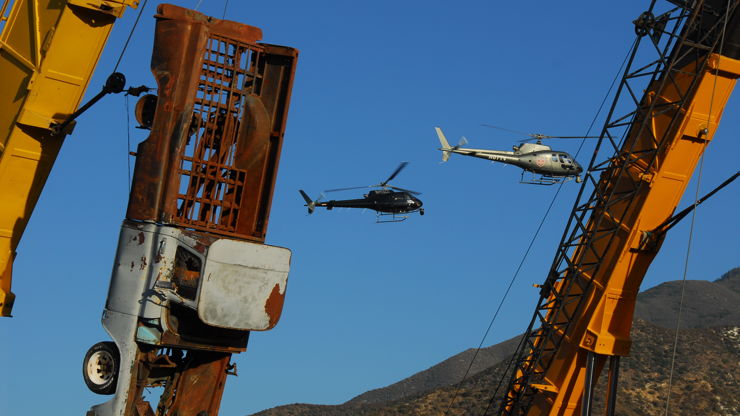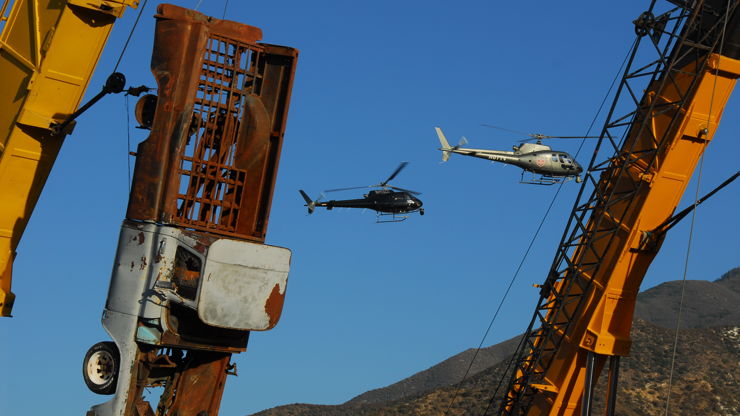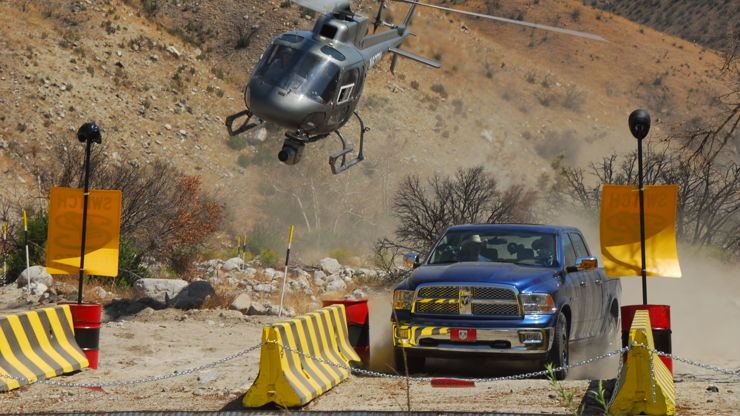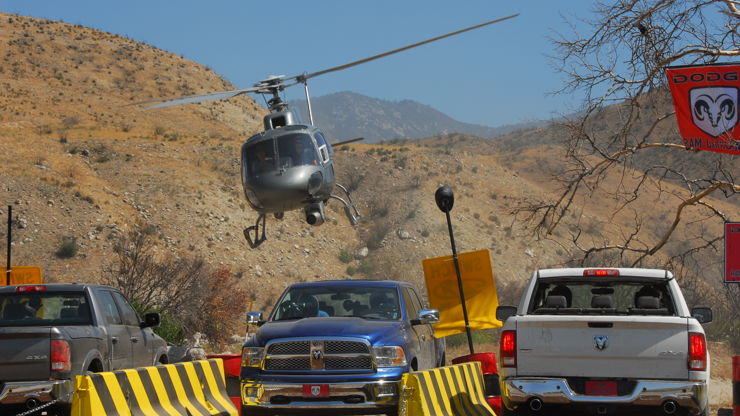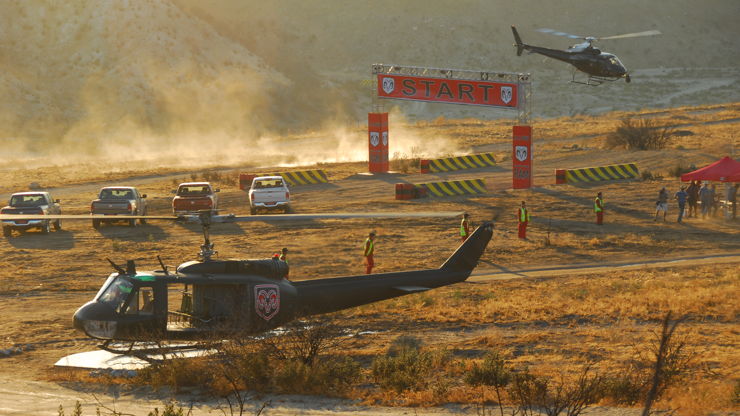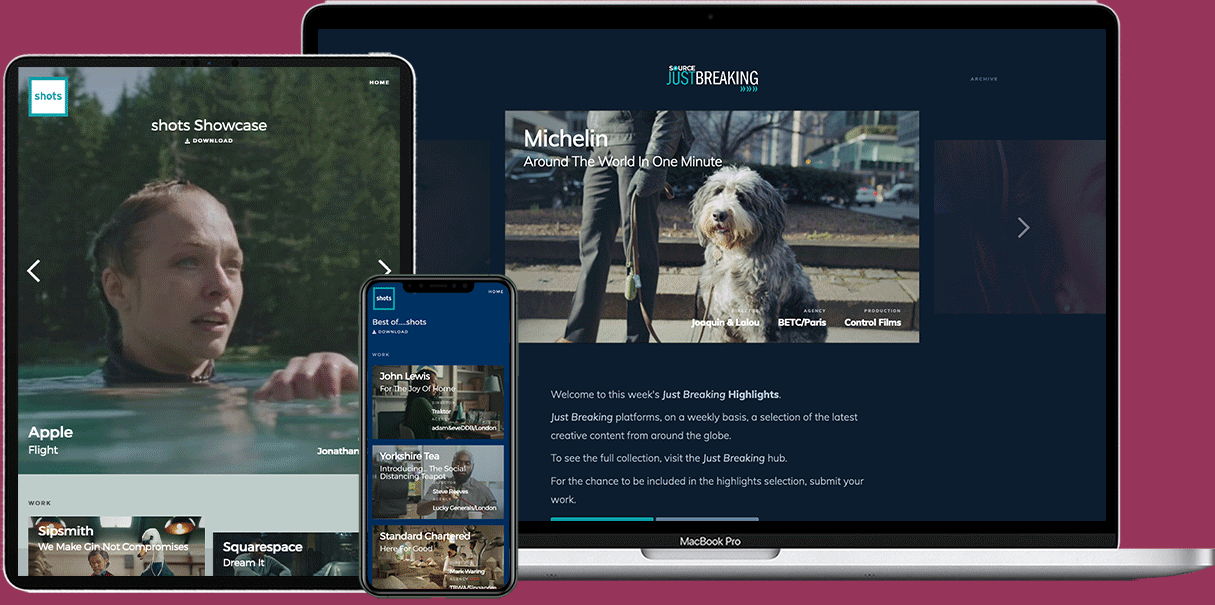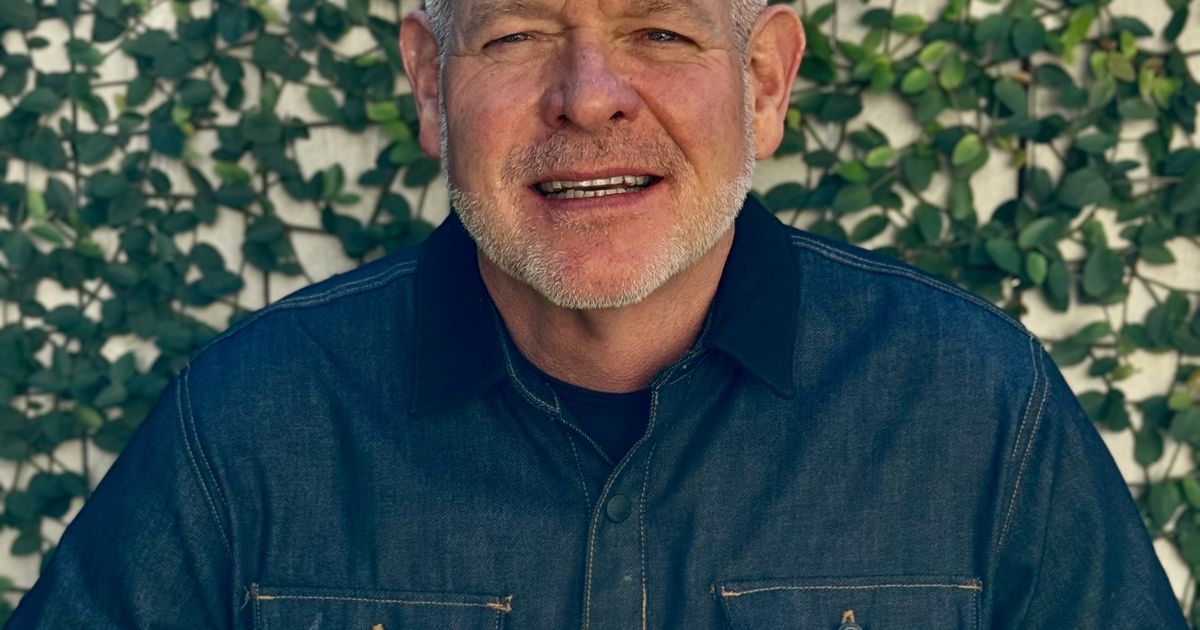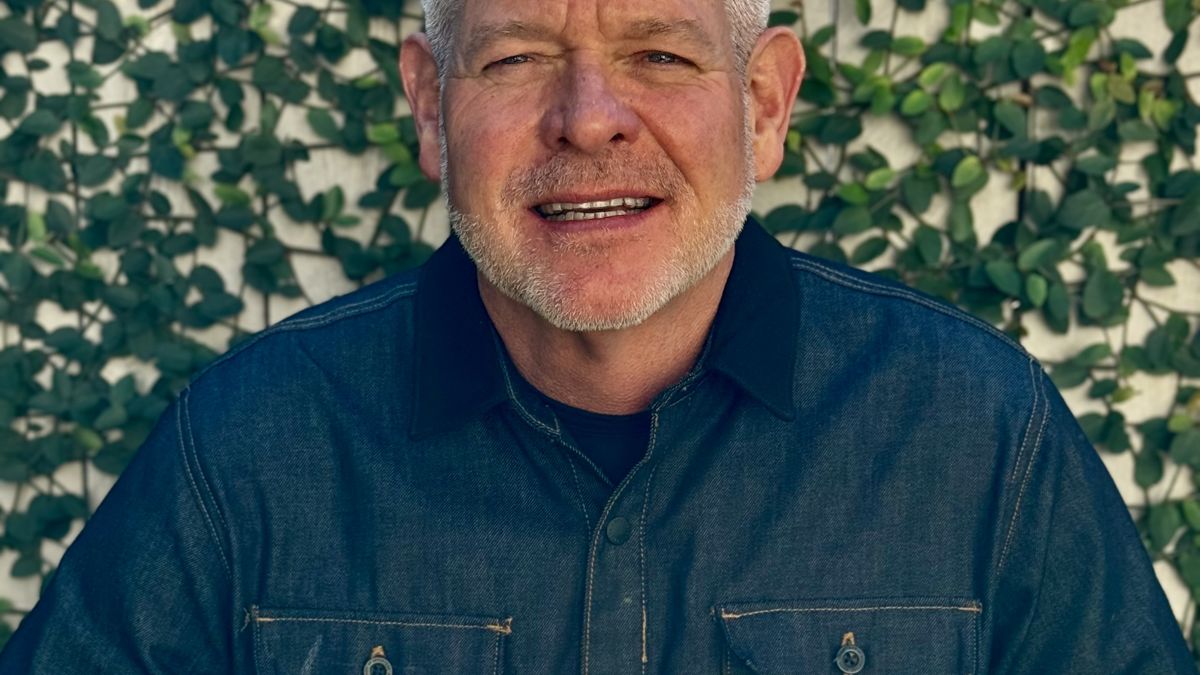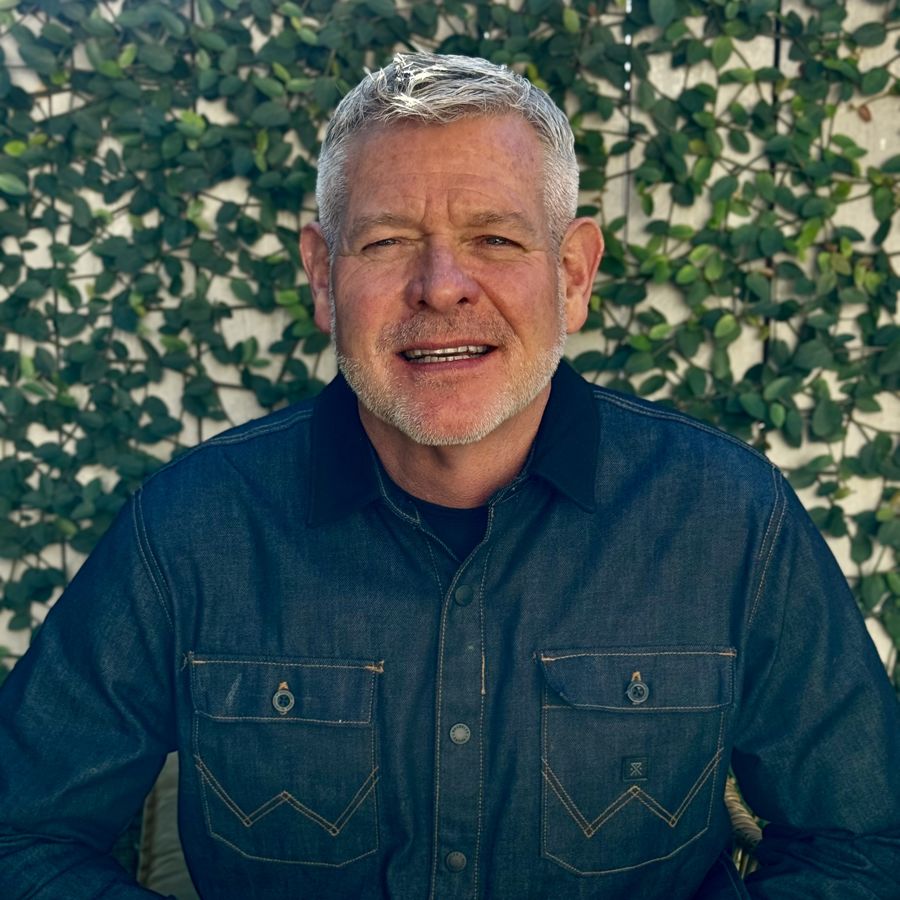
The Way I See It: David Mitchell
Building a three-decade-long career with Tony and Jake Scott, marked by masterpieces like BMW Beat the Devil, Budweiser Lost Dog, and Nike Awake, David Mitchell launched his own creative collective, Wild Gift, in 2021. He tells shots why production is finally heading to a good place – and how punk rock remains his passion.
I was born in the San Joaquin Valley, in the central farming area of California - not the cool southern part. It was a very small town of five thousand people and two stoplights.
My dad was a farmer, and I was raised on his ranch around fields of cotton and corn. My earliest memories are of ‘driving’ pickup trucks and tractors around the ranch while sitting on his lap. I’m sure he was hitting the pedals, but I was steering.
It's a very flat, agricultural area, but interestingly, bits of famous films were shot in and around there: those scenes with the biplane in North by Northwest were filmed literally two miles from where I grew up, as well as a lot of Thelma and Louise.
I wouldn't say that it was the most creative environment to grow up in, but it was a great childhood: very traditional, playing high school football games on Friday nights, that sort of thing. Of course, like all kids, you hate where you grow up, you can’t wait to get out of here. Looking back, I realise I was protected from a lot of things, without knowing it. Growing up in southern California or Hollywood, I would have been a wild child.
Growing up in southern California or Hollywood, I would have been a wild child.
School wasn’t my focus – I wanted to play. I wasn't a bad student, but I got easily distracted. I played a lot of American football, and then got heavily into music. It was right around the time The Clash were coming out of London. Being close enough to LA, the music that I was exposed to had a profound impact on me, and I became a bit of a punk rocker.
After graduating from high school, I went down to San Diego State [University], which is where I started finding my way into the advertising industry. My focus was marketing and advertising, and even before I graduated, I was already working as an account man at one of the big ad agencies, Franklin and Associates. It was quite well known back then because it was run by ‘the Johns’ - John Vitro and John Robertson from Chiat Day.
I was a terrible account person. I ended up moving to Tatham EURO RSCG in Chicago, where I worked for the Bell Companies - Illinois Bell, Indiana Bell, Michigan Bell, Ohio Bell, and Wisconsin Bell [who then merged and became a part of Ameritech]. In Chicago, I was much more exposed to the production side of things and remember sitting on set and just freaking loving it, even though I didn't know what the hell was going on. That’s when I knew I didn’t want to be an account manager anymore. So I quit, moved back to LA and became a production assistant.
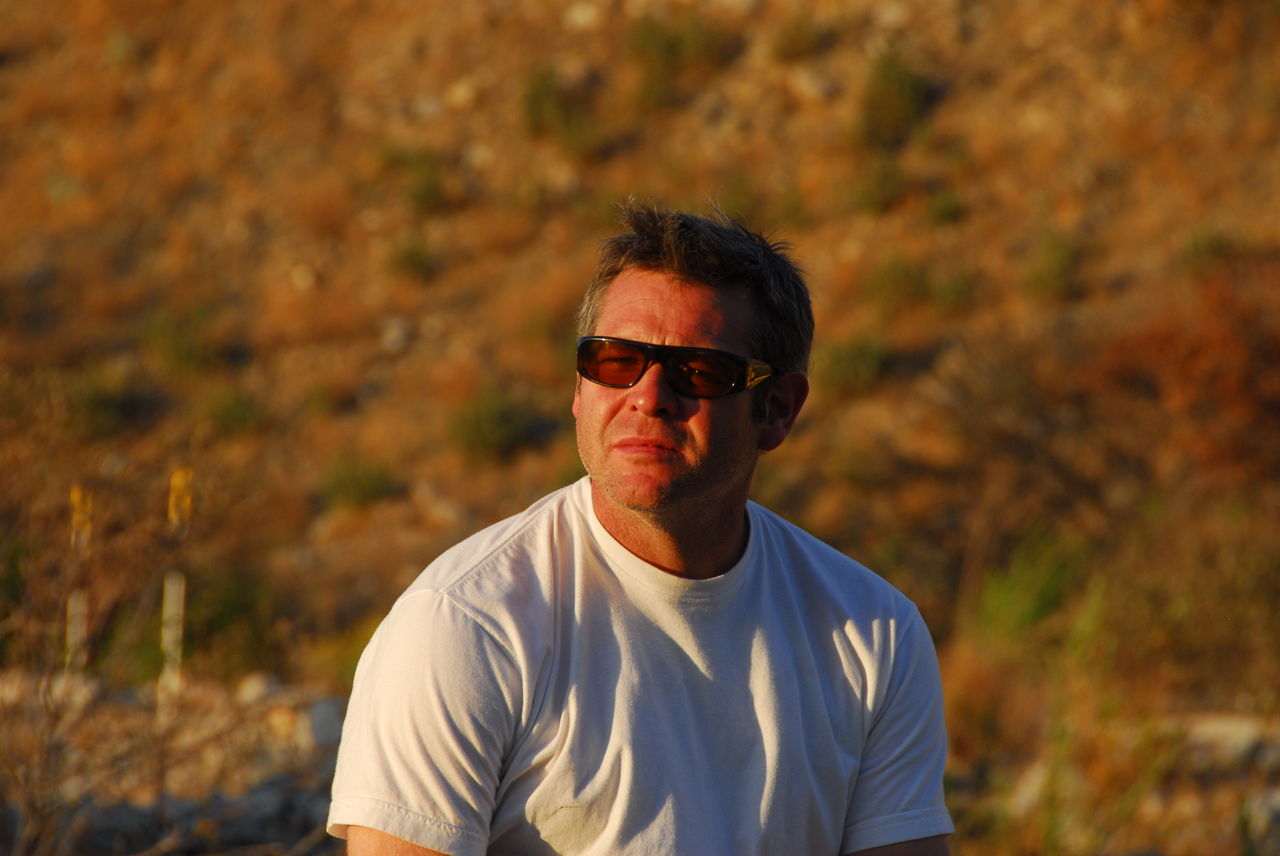
Above: Mitchell on set of the Dodge Ram Challenge, a huge production with Tony Scott.
It was an odd way to come into it, but my agency experience really helped me on the production side. Even as a little production assistant, I understood what advertising agencies would be asking for – and why. Back in LA, I did a tour of duty as a freelance PA and then production coordinator. I did Propaganda Films, Bedford Falls, Joe Pytka - all the major production companies. And then I met Jules Daly [former RSA President] on a Pizza Hut commercial over at Smiley Films. I’ll never forget that day. I walked in, and we looked at each other and we just went ‘mmm-hmmm.’ And after that job, she said: I want you to come to RSA with me.
By meeting Jules, I was introduced to Ridley, Tony and Jake [Scott] – the whole RSA family. I was incredibly fortunate to meet all the right people, who became good mentors. That was 1995, and while I remained technically freelance for many, many years, I became permalance at RSA. People eventually stopped calling me for other work because they assumed I was staff.
[I] remember sitting on set and just freaking loving it, even though I didn't know what the hell was going on.
It was a really great era in advertising. One of the first production coordinator jobs I did was a David Fincher-directed Budweiser campaign, Ginger or Mary Ann? I was driving around in cars and having lunch on scouts with David Fincher and the producers, and while it didn’t make a lot of sense, it just seemed so normal.
I first started working on one of Tony Scott’s shoots at 25 years old, and five years later I was producing for him. There was a period between Enemy of the State and Spy Game where we were doing a lot of commercials - Tony was a workhorse! – and that was my training ground. A lot of the jobs in the Tony days were through RSA London, with Leagas Delaney. I remember being thrown into the big Barclays commercials with Anthony Hopkins and Tim Roth. All my friends and family were going, ‘We want to watch them!’ but because the ads only aired in Europe, they couldn’t.
Credits
powered by
- Agency Fallon/Minneapolis
- Production Company RSA Films
- Director Tony Scott
-
-
Unlock full credits and more with a Source + shots membership.
Credits
powered by
- Agency Fallon/Minneapolis
- Production Company RSA Films
- Director Tony Scott
- Art Director David Carter
- Copywriter Greg Hahn
- Producer Brian DiLorenzo
- Copywriter Vincent Ngo
- Assoc Producer Ted Knutson
- CD Bruce Bildsten
- HP/Producer Mark Sitley
- Chief Cr Off/CD David Lubars
- Art Director Tom Riddle
- Copywriter David Carter
- DP Paul Cameron
- Editor Skip Chaisson
- Line Producer Ridley Scott
- Line Producer Jules Daly
- Line Producer RSA Films/USA
- Sound Design Media Ventures
- Music Harry Gregson-Williams
- Colorist Stefan Sonnenfeld
- Music Andy Carroll / (Composer/Sound Designer)
- Producer Jules Daly
- Music Andy Carroll / (Composer/Sound Designer)
- VFX Asylum
- Music Amber Music
- Prod Design/Producti Ken Davis
- CD/Copywriter Bruce Bildsten
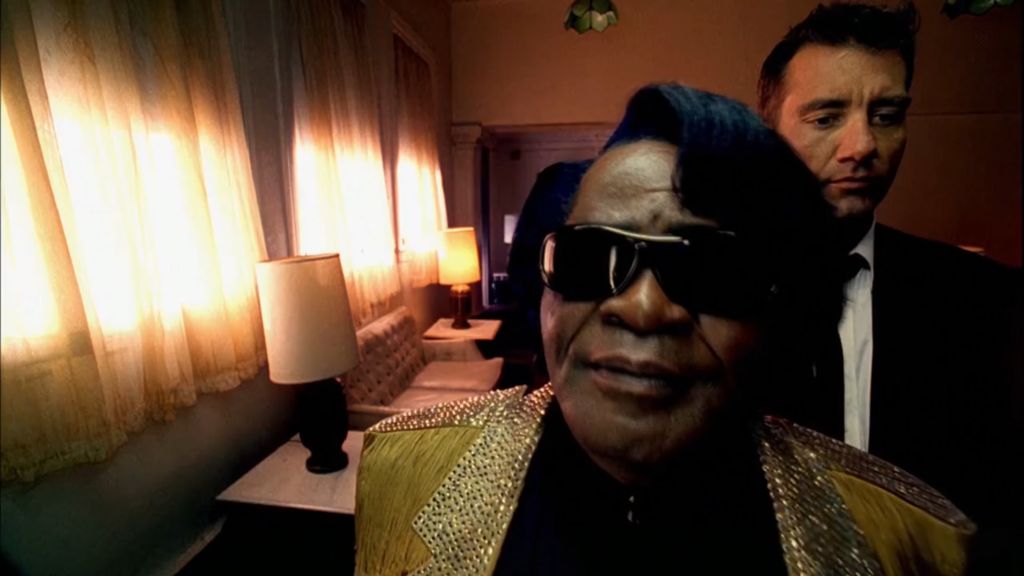
Credits
powered by
- Agency Fallon/Minneapolis
- Production Company RSA Films
- Director Tony Scott
- Art Director David Carter
- Copywriter Greg Hahn
- Producer Brian DiLorenzo
- Copywriter Vincent Ngo
- Assoc Producer Ted Knutson
- CD Bruce Bildsten
- HP/Producer Mark Sitley
- Chief Cr Off/CD David Lubars
- Art Director Tom Riddle
- Copywriter David Carter
- DP Paul Cameron
- Editor Skip Chaisson
- Line Producer Ridley Scott
- Line Producer Jules Daly
- Line Producer RSA Films/USA
- Sound Design Media Ventures
- Music Harry Gregson-Williams
- Colorist Stefan Sonnenfeld
- Music Andy Carroll / (Composer/Sound Designer)
- Producer Jules Daly
- Music Andy Carroll / (Composer/Sound Designer)
- VFX Asylum
- Music Amber Music
- Prod Design/Producti Ken Davis
- CD/Copywriter Bruce Bildsten
Above: BMW's The Hire: Beat The Devil, a forerunner of branded entertainment with a stellar cast.
BMW's The Hire: Beat The Devil was way before its time as an idea. Even the internet wasn't ready for it – the film took a while to download! From a production standpoint, it definitely caused some grey hairs. To the point it’s hard for me to watch the film now, because I sit there remembering how Marylin [Manson]’s trailer didn’t show up, for example.
It was a tremendously challenging job to produce, but at the same time, I was surrounded by some of the top filmmakers and producers and this amazing cast of James Brown, Gary Oldman, Clive Owen and Marilyn Manson. Also, like with most of Tony’s [brand and commercial] work, we had a feature crew – and the guys from his films were top-notch, some of the best you could ever work with.
The internet wasn't ready for [Beat The Devil] – the film took a while to download!
Las Vegas is a tough place to shoot because ironically, it's not motivated by money. You can't just go to a casino and say, I’ll give you $20,000 dollars [to shoot here], because they’ll just say: ‘well, someone could come in and drop $250,000 [at the table].’ We shot Beat the Devil in four days. I remember a little countdown sign in my office that my production team put together and as we came down to the last 24 hours of this shoot, we'd walk in and start counting down every hour. We were almost done but when it got down to one, it started going up again because we had to shoot a 25-hour day.
One of the best memories I have was sitting in a room with Tony on his first meeting with Gary [Oldman], as they discussed the script and worked out what the devil character was going to be like. The way the character transformed over an hour - and kept transforming – was an incredible process to witness. Also, when we were shooting James Brown performing at a downtown hotel in Vegas, I had to pinch myself.
Beat The Devil was almost the biggest production [Tony and I] did. We only did one bigger - the Dodge Ram Challenge, which was a reality show-style race with a crew of over 250 people and four helicopters and 16 cameras. It was insanity, money being spent like water. We had [mess halls] set up just to feed the crew.
Dodge – Dodge Ram Challenge - Webisode 1 (pt 1)
Dodge – Dodge Ram Challenge - Webisode 1 (pt 2)
Dodge – Dodge Ram Challenge - Webisode 2
Dodge – Dodge Ram Challenge - Webisode 3
Dodge – Dodge Ram Challenge - Webisode 4
Above: Multiple episodes of the Dodge Ram Challenge - a reality show-style race with a crew of over 250 people.
I’ve earned some grey hairs in this business, but getting Marlon Brando to agree to show up on the set of Telecom Italia was pretty wild. He’d kept pushing the shoot, and it got to Sunday, and we were supposed to shoot on Thursday. I’m driving my car and my phone rings, and it’s Marlon Brando, saying the money hasn’t hit his account. I tell him it’s on the way - but I need to know if he’s going to show up on Thursday, as I have a crew leaving the city tomorrow. Then he says: ‘The script isn’t any good.’ So I say: ‘Marlon, they are paying you to read the script, to dance the script, to MIME the script - whatever you want to do. I just need to make sure: are you going to show up?’ There’s a long moment, and then he growls, ‘I'll see you on Thursday.’
When Tony wasn’t available for so many commercials, that’s when I started working with Jake [Scott]. I met Jake just as his career was really taking off, off the back of the REM Everybody Hurts video - which I did not [produce] but I was a huge fan of. There was a time when it felt like we were literally on the road year-round. We’d wake up and think, where are we? We were like a travelling circus, or the Stones on tour in 1973 - travelling the world and probably partying a little too much at times. We’ve been through thick and thin and now he’s just like a brother to me. Part of our connection is that we’re both obsessed with music: we can bore people to death talking about it for hours.
Do what you love and the money will follow. That’s the best advice I’ve ever been given.
I don’t know if I have a favourite ad I’ve been involved with. The Budweiser Lost Dog Super Bowl spot was special because so many people saw it. I mean, where can you go wrong with puppies? It’s definitely the ad my family cares about the most. They’re always asking me, are we gonna see any more puppy commercials?
Fat Tire’s Tinkerer is the campaign that Jake and I still talk about today. It was really hard to produce because the funds weren't there for what his vision was, but we figured it out and shot it in Colorado with a very tight crew of 12. We were like a little family: we all pitched in and did a bit of everything to make it happen. I try to take that mentality as much as possible to every production.
Credits
powered by
- Agency Anomaly/New York
- Production Company RSA Films
- Director Jake Scott | (Director)
-
-
Unlock full credits and more with a Source + shots membership.
Credits
powered by
- Agency Anomaly/New York
- Production Company RSA Films
- Director Jake Scott | (Director)
- Audio post Tom Goldblatt
- Exec Producer Tracie Norfleet
- Head of Production Paul Kawasaki
- Editor Rick Lawley
- Assistant Editor Alejandro Villagran
- Exec Producer Lauren Hertzberg
- Producer Melanie Klein
- Colorist Fergus McCall
- Producer Mandy Harris
- Lead 2D Artist Anne Trotman
- 2D Assistant Krissy Nordella
- Sound Design Tom Goldblatt
- Assistant Sound Mixe Cathleen Conte
- DP Chris Soos | (DP)
- VFX The Mill/New York
- Chief Cr Off Mike Byrne
- Exec CD Eric Segal
- ACD Johnny Dantonio
- ACD Mark Sarosi
- HP Andrew Loevenguth
- Sr Producer Amy Bonin
- Line Producer David R Mitchell
- Song "I'm Gonna Be (500 Miles)" Ryan O'Neal
- Shoot Supervisor Eliza Randall
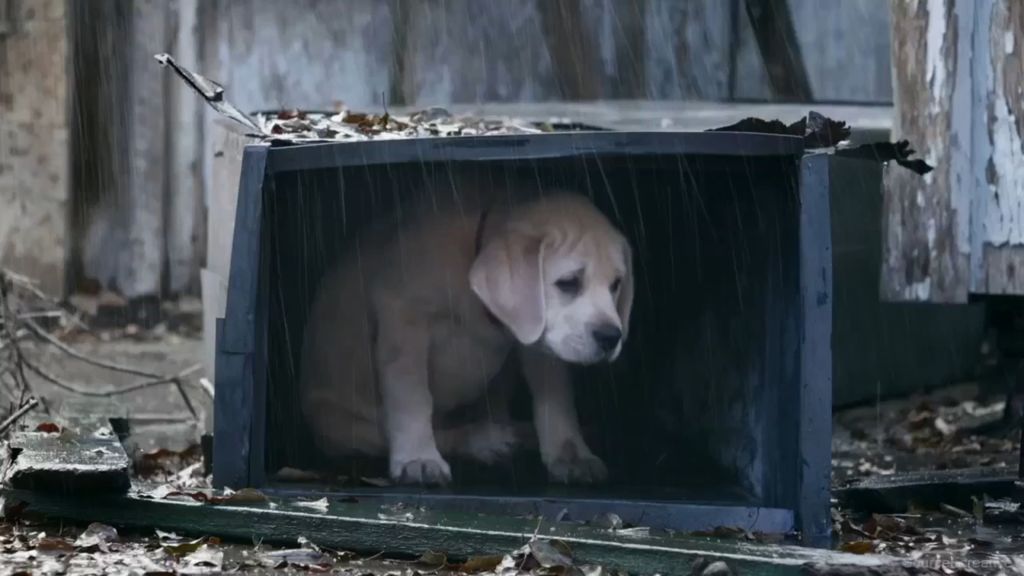
Credits
powered by
- Agency Anomaly/New York
- Production Company RSA Films
- Director Jake Scott | (Director)
- Audio post Tom Goldblatt
- Exec Producer Tracie Norfleet
- Head of Production Paul Kawasaki
- Editor Rick Lawley
- Assistant Editor Alejandro Villagran
- Exec Producer Lauren Hertzberg
- Producer Melanie Klein
- Colorist Fergus McCall
- Producer Mandy Harris
- Lead 2D Artist Anne Trotman
- 2D Assistant Krissy Nordella
- Sound Design Tom Goldblatt
- Assistant Sound Mixe Cathleen Conte
- DP Chris Soos | (DP)
- VFX The Mill/New York
- Chief Cr Off Mike Byrne
- Exec CD Eric Segal
- ACD Johnny Dantonio
- ACD Mark Sarosi
- HP Andrew Loevenguth
- Sr Producer Amy Bonin
- Line Producer David R Mitchell
- Song "I'm Gonna Be (500 Miles)" Ryan O'Neal
- Shoot Supervisor Eliza Randall
Above: Budwieser's Lost Dog, a special spot for Mitchell.
Setting up Wild Gift with Tomer DeVito was an amazing opportunity to start a company that I could put my own stamp on. It was a hard decision to leave RSA after so many years – it is a family - but being MD of a big company pulled me away from producing and getting my hands dirty. Wild Gift allows me to be much more involved in that aspect, being down in the trenches and having fun with some amazing young and more established filmmakers. It’s the best of both worlds.
I’m really excited about where the roster is and I want to continue building it – but I also don't want to get it too big. I was raised in the industry around some of the greatest filmmakers, visualists and storytellers – and all our guys hark back to that spirit, whether it’s the Michael Mans and Alfonso Gomez-Rejons of the features world, or amazing commercial directors like Tobias Granström, or a wizard of technology like Misko Iho.
I don’t want to sound like Pollyanna, but I think we're headed towards a really good time in production. The last three to four years have been hard, but advertising is not going anywhere. There are more places for us to put ads and opportunities to make more interesting ads, since the streaming platforms aren’t constrained to 15, 30 or 60-second slots - they can do whatever the hell they want, really. I'm hopeful that there could be some really interesting branded content in the near future. Imagine if one of these streaming platforms took a chance on something like The Hire.
I think we're headed towards a really good time in production.
The best advice I’d give a kid hoping to get into the business would be: Listen. Learn everything you can. When you are on set, know what the camera department is doing, know what the grips, what the electricians are doing. When I’m hiring producers, I always want people who have come up through the industry ranks, because that gives you a true understanding of what's going on and how to react wisely when you're faced with some tough decisions. When I started out as a producer, post-production and CG weren't as prevalent and integrated into what we do. Now you have to understand those components. Also, with tighter budgets you need to know how to make the dollar stretch a little.
Do what you love and the money will follow. That’s the best advice I’ve ever been given. When I moved to Chicago, my managing partner Tom Odishoo wrote me a letter which said: to be read at 30,000 feet. So I waited til then, and that’s the line I always remember.
Brands I’d like to work with? It’s not so much the brand as how good the creative is – it could be cat food, but the script could be genius.
When it comes to agencies, I'm having fun watching what Greg Hahn’s doing with Mischief - I've worked with him quite a bit and I love the attitude that they've created there. Highdive in Chicago is also doing some amazing work. And Detroit is on fire right now with Commonwealth // McCann.
Above: MOre behind the scenes shenanigans from the Dodge Ram Challenge.
If I wasn’t running Wild Gift, I’d probably working in a nursery [garden centre] somewhere idyllic, like Montana. There’s nothing like getting your hands dirty. It harks back to my days working on the ranch.
The best and worst single day of my career was wrapping the final shot for Beat The Devil. I was so glad it was over, but at the same time, I was kind of bummed that it was. That's the life of a producer!
If I could change one thing about myself, it would be my insecurity. As many shoots that I've been on, having had every problem thrown at me, I’m still insecure. Deep down I’m that little farm boy standing on set with Ridley Scott, worried I’m going to be found out. If I could time travel, I’d go back as a 20-year-old to 1972 – the greatest year for music ever, the year music changed everything. If it wasn’t being recorded in that year, it was being released in that year.
I’ve been quite lucky. I’ve never had a near-death experience that profoundly changes everything. Although for some of the things I put myself through, I probably had a guardian angel who said: ‘I'm done’ and walked away.
Public speaking terrifies me, so I guess I’m essentially more of an introvert. If you asked me to get up and make a speech in front of 100 people, I could not do it. I would literally be pouring with sweat.
David Bowie is my hero. As big as he was a public figure, an artist, a musician and an actor, he was also one of the most personable, approachable and genuinely nice people I've ever worked with.
When I’m hiring producers, I always want people who have come up through the industry ranks.
I cry at anything and everything. But probably the last time was when I lost my dog, a big ill-behaved golden retriever. My Instagram account is full of golden retrievers. I’m a news junkie so posts of dogs doing stupid things helps me keep that balance.
What makes me angry? Stubbornness and not keeping an open mind.
The single greatest and worst human inventions are maybe about to be seen with the whole OpenAI thing going on [researchers at OpenAI have reportedly warned of a significant artificial intelligence discovery that could potentially pose a threat to humanity]. But as [Open AI CEO] Sam Altman said, AI is like nuclear energy: there are good parts and bad parts - it’s just about managing it.
If I were US President for the day, I’d mow the lawn in front of the White House. And tell everybody to take a breather and be nice to each other. My ambition is to continue being happy. I recently watched a documentary about the history of the universe and had a slight panic attack over this one episode about the Sun and the size of it – how it takes a photon of light hundreds of thousands of years to get from the core of the Sun to the surface. We are so insignificant, so we should just chill out and be happy.
I'm not going to be remembered as a great person. But I hope I’m remembered as a good one. At the end of the day, being good is all that really matters.

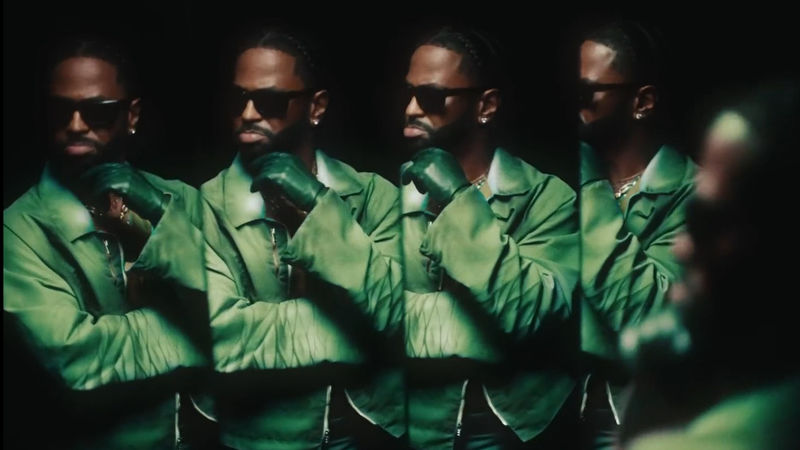
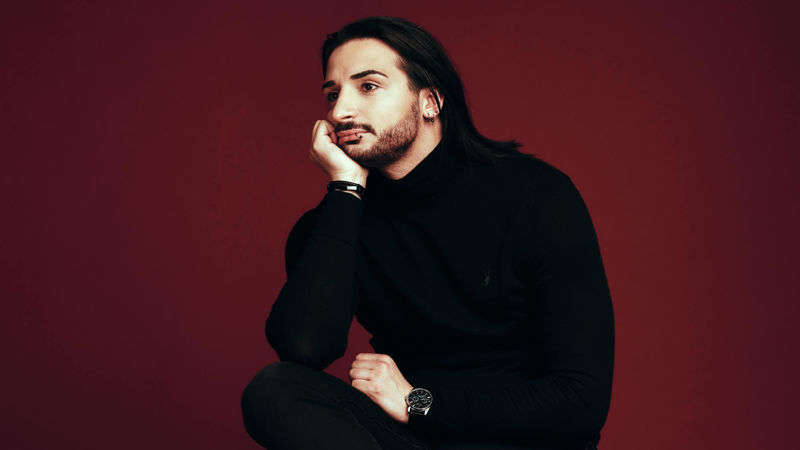
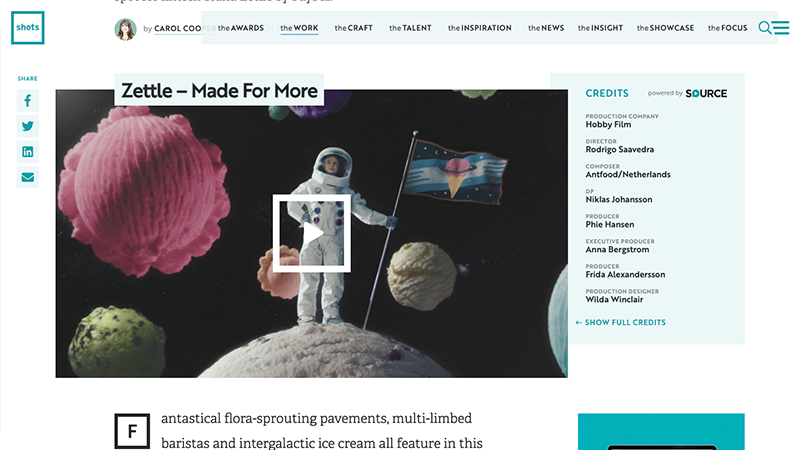
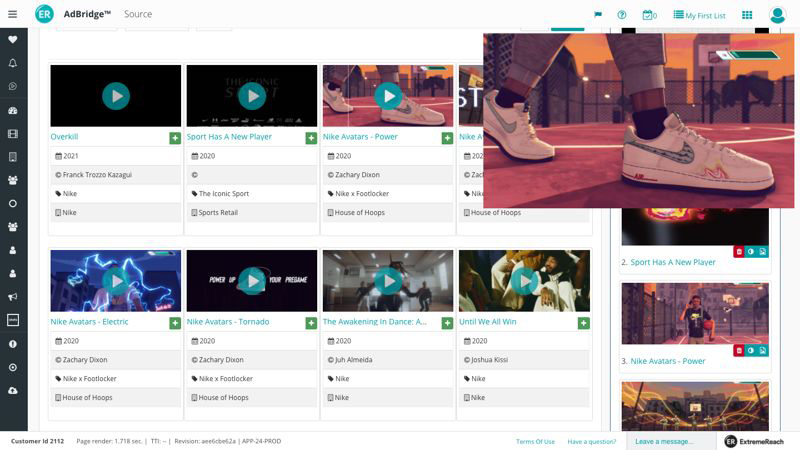
 + membership
+ membership